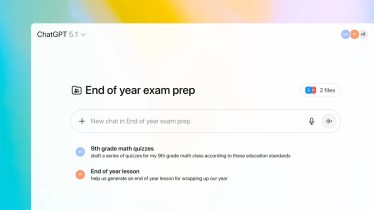OpenAI is expanding into the education arena with the release of ChatGPT for Teachers and as the name suggests, it is a tailored version of its AI chatbot designed exclusively for K-12 educators. This version of ChatGPT aims to equip teachers with powerful AI tools to streamline lesson planning, foster collaboration, and tackle issues like AI-fueled cheating, all while prioritising student privacy.
In a nod to the growing role of generative AI in education, the platform lets educators “grade” AI outputs, ensuring responsible integration of the technology. ChatGPT for Teachers creates a secure, dedicated workspace where instructors can experiment with AI in a controlled environment, free from the distractions and data risks of the consumer version.
ChatGPT for Teachers rolled out
“Our objective here is to make sure that teachers have access to AI tools as well as a teacher-focused experience so they can truly guide AI use,” said Leah Belsky, OpenAI’s vice president of education, in an official statement.
At its core, the platform builds on ChatGPT’s strengths but dials them up for classroom realities. Users get higher usage limits and access to the advanced GPT-5.1 Auto model, unlocking features like real-time web search, file uploads for analysis, image generation for visual aids, and seamless connectors to productivity apps such as Google Drive, Microsoft 365, and Canva.
The AI even remembers teacher-specific details, like the grade level they instruct, to deliver personalised suggestions. This should help slash time on routine tasks. Educators can craft and share custom GPTs tailored to subjects like math drills or history timelines, drawing from a library of peer-created prompts for instant inspiration.
OpenAI promises top security
OpenAI says that security takes center stage, with full compliance to the Family Educational Rights and Privacy Act (FERPA) to safeguard student data. Administrative perks include domain claiming, SAML single sign-on for easy logins, and district-wide oversight tools, allowing school leaders to monitor usage and set boundaries.
OpenAI pledges that data shared within the platform won’t train its models, addressing fears of Big Tech harvesting sensitive info. The beta launch kicks off with select US districts serving 150,000 educators, including names like California’s Capistrano Unified School District, Texas’s Dallas Independent School District, and Virginia’s Fairfax County Public Schools.
Verified K-12 teachers nationwide can sign up for free access through June 2027, giving ample runway to test and refine. Post-2027, pricing will roll in, but OpenAI promises advance notice and affordability to keep it accessible for cash-strapped districts.
